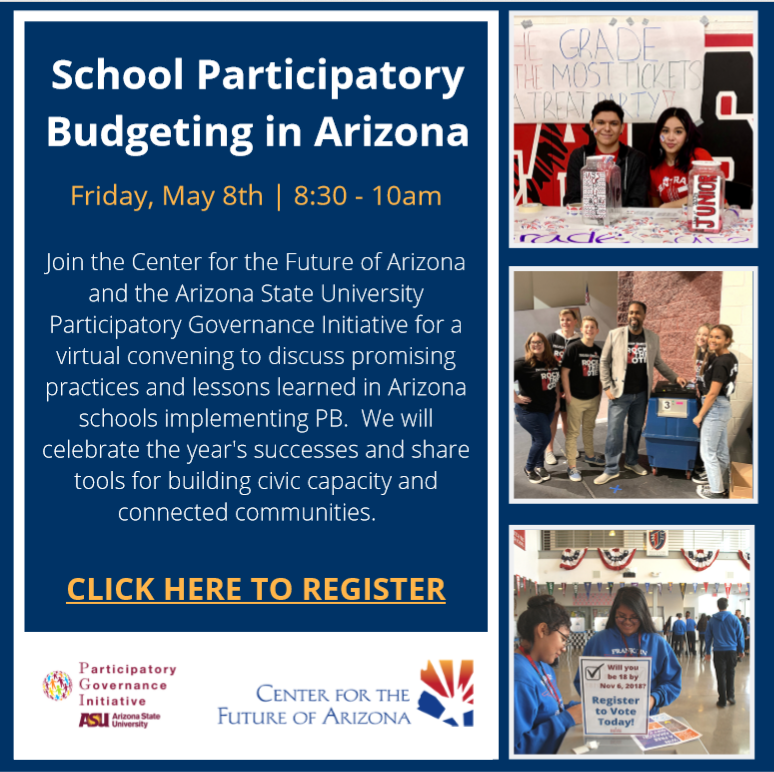UPCOMING EVENTS
Stay tuned for updates on events.
---------------------------------------------------------------------------------------------------------
PAST EVENTS
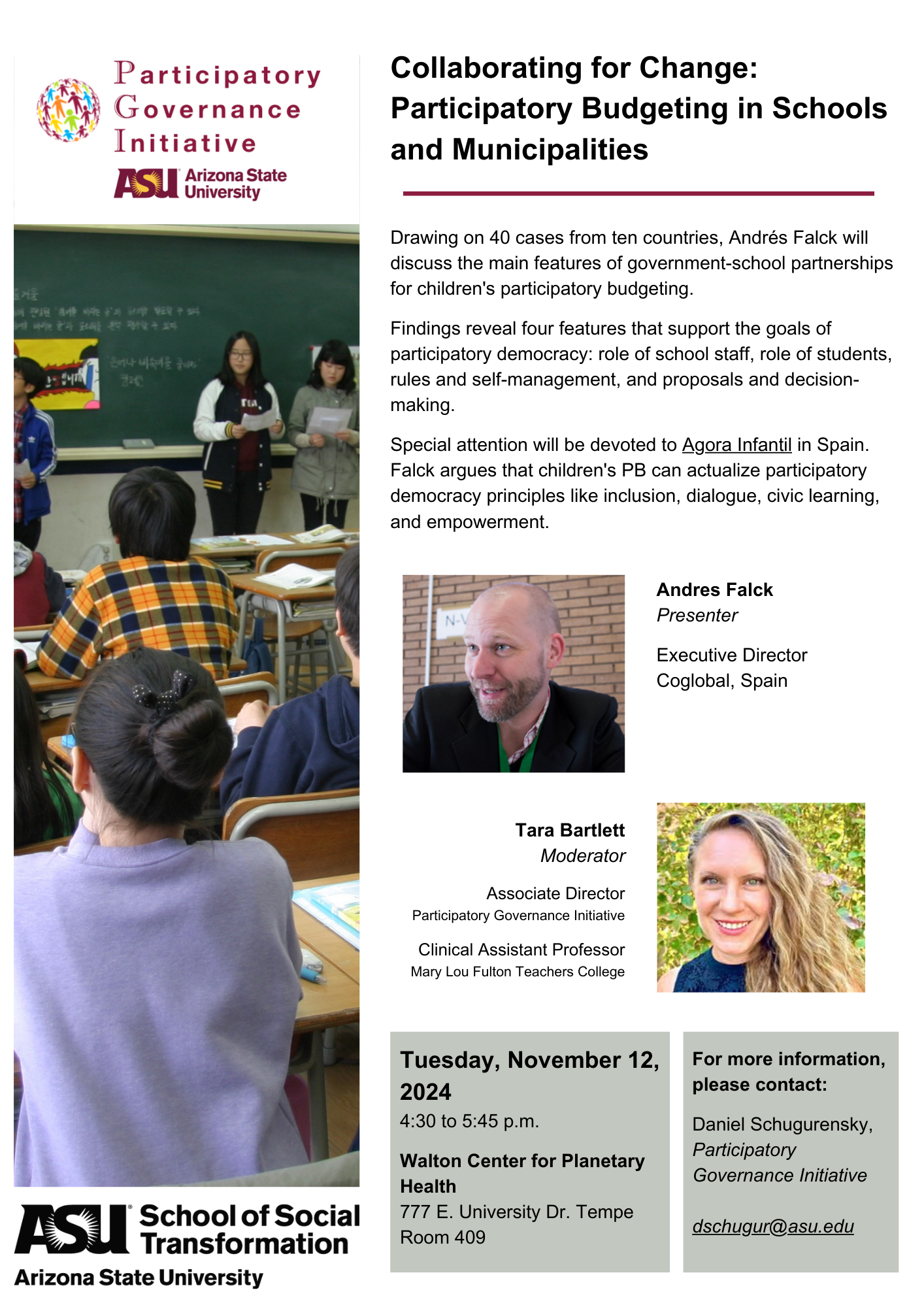
Community Conversations: A Civil Dialogue on Renewable Energy
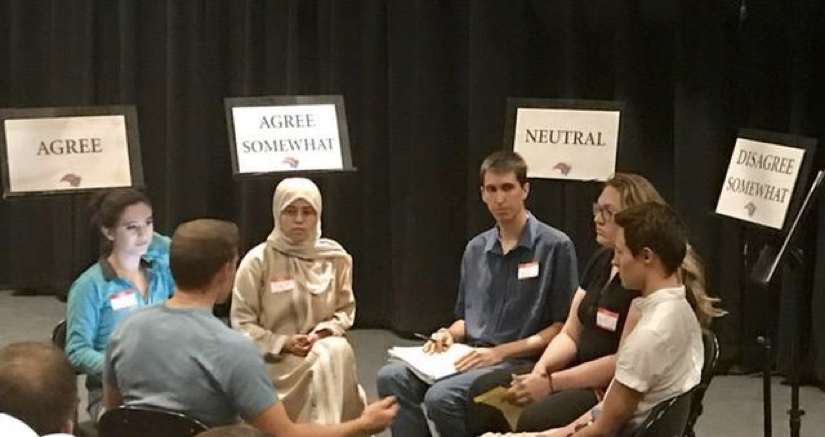
Monday, April 1, 2019, 6:00-7:30 pm
UCENT 234 (2nd floor),
Arizona State University Downtown Phoenix campus
411 N. Central Ave, Phoenix, AZ 85004
In the aftermath of the defeat of Proposition 127 in Arizona and the approval of Question 6 in Nevada in the November 2018 elections, the time is ripe for a civil dialogue on renewable energy. In a Civil Dialogue session, volunteer participants consider a provocative statement and have the opportunity to embody a position on the statement ranging from “agree strongly” to “disagree strongly.” Participants are asked to follow guidelines for civility that are explained by the facilitator. The dialogue is then extended to the broader audience, who are encouraged to respond with their own opinions and questions.
Awakening Democracy: Higher Education and the Dignity of Work
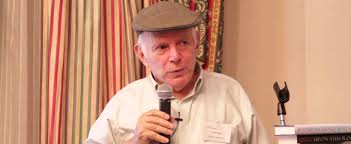
Harry C. Boyte, Sabo Center for Democracy and Citizenship, Augsburg University
Tuesday, March 19, 2019, 3:00 PM - 4:30 PM
Memorial Union, 227 Pinal
Arizona State University, Tempe campus
Boyte is the Senior Scholar in Public Work Philosophy at the Sabo Center for Democracy and Citizenship at Augsburg University. He is the architect of the center’s public work approach to civic engagement and democracy and the creator of Public Achievement. He has worked with a variety of foundations, and non-profit, educational, and citizen organizations in the United States and abroad concerned with community development, citizenship education, and civic renewal.
Boyte served as a senior advisor to the National Commission on Civic Renewal and presented research findings at a Camp David seminar on the future of democracy. He is the author of nine books on citizenship, democracy, and community organizing, and his writings have appeared in more than 100 publications, including the New York Times, Perspectives on Politics, Kettering Review, and the Wall Street Journal. In the 1960s, he worked for the Rev. Martin Luther King, Jr. as a field secretary with the Southern Christian Leadership Conference in the Civil Rights Movement. His areas of expertise include civic engagement, theory and practice of democracy, citizen politics, citizen professionalism, international democracy promotion and national service initiatives.
For background on Boyte's work, please see his call for a new civic covenant, a recent piece he wrote for The Nation, and a review of his latest book in the Boston Review.
The Crisis of Political Representation and the Rise of Independent Voters
Jacqueline Salit, President, Independent Voting
Friday, October 26, 2018, 10:30 am-12:00 pm
Arizona State University, Downtown Campus
Room 263, University Center (UCENT) building

While the constant crossfire of partisan politics dominates the headlines, a new community of voters is struggling for recognition. These are America’s independent voters, 44% of the electorate, but dramatically underrepresented at every stage of the political process. Who are these voters? Can they transform the way we do politics?
Jacqueline Salit is the President of Independent Voting, a national strategy and organizing center for independent voters. The author of Independents Rising (Palgrave Macmillan, 2012), in 2017 Salit teamed up with ASU’s Morrison Institute for Public Policy and the USC Schwarzenegger Institute for State and Global Policy to examine independent voters in “Gamechangers?: Independent Voters May Rewrite the Political Playbook.”
"Is Democracy Really in Decline? A report back from a 200-day trip around the world"
Bruno Kaufmann, Co-president, Global Forum on Modern Direct Democracy
Tuesday, April 10, 2018, 2:00-3:30 pm
Arizona State University, Downtown Campus
University Center building, Room 880N,
411 N. Central Avenue, Phoenix, AZ 85004
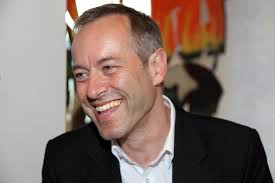 Conventional wisdom is that democracy around the world is on the decline, or in "recession," in the preferred word of Stanford's Larry Diamond. But Bruno Kaufmann, a political scientist and the global democracy correspondent for Swiss Broadcasting, begs to differ. In the midst of his latest 200-day reporting trip around the world, Kaufmann describes both the resilience of democracy and its growth and expansion at the local level. Even countries where democracy is challenged at the national level are making democratic gains in other ways.
Conventional wisdom is that democracy around the world is on the decline, or in "recession," in the preferred word of Stanford's Larry Diamond. But Bruno Kaufmann, a political scientist and the global democracy correspondent for Swiss Broadcasting, begs to differ. In the midst of his latest 200-day reporting trip around the world, Kaufmann describes both the resilience of democracy and its growth and expansion at the local level. Even countries where democracy is challenged at the national level are making democratic gains in other ways.
Bruno Kaufmann is a political scientist and Editor-in-Chief of people2power.info, a global democracy media platform hosted by the Swiss Broadcasting Company. He was also the former chair of the Election and Democracy Commission in the city government of Falun, Sweden and president of the Initiative and Referendum Institute. He has published extensively on modern representative democracy with a focus on active citizenship and participative democracy. He is the author of the European Passport to Active Citizenship, published in all official EU languages by the European Economic and Social Committee. Mr. Kaufmann serves as co-president of the Global Forum on Modern Direct Democracy (a network and free public gathering, which next takes place in Rome September 26-29, 2018.
Dissertation Defense: Redistribution and Deliberation in Mandated Participatory Governance
Won No, School of Public Affairs, Arizona State University
Wednesday, April 11th, 2 pm
University Center Building 480, Downtown Phoenix Campus
This dissertation examines whether participatory budgeting (PB) processes promote inclusive and deliberative decision-making and social justice outcomes in local governance. The first chapter introduces the case of this dissertation: PB in the city of Seoul, South Korea.
Overall, this dissertation contributes to the field of public management and, in particular, to the subfield of participatory governance by providing a review of the literature on PB in South Korea, presenting empirical evidence showing that the redistributive effect of PB is possible even without explicit equity criteria, and analyzing conditions that contribute to the quality of deliberation in the context of PB using the empirical data.
2018 CONFERENCE: INNOVATIONS IN PARTICIPATORY DEMOCRACY
March 8-10th, 2018
Are you ready to learn more about the top innovations in civic engagement and democracy around the world?
Join more than 250 community leaders, government officials and staff, practitioners, researchers, funders, young leaders, and technologists to explore innovations that empower community members to make real decisions and directly participate in government.
Mark your calendars for the Innovations in Participatory Democracy Conference from March 8 - 10, 2018 in Phoenix, Arizona - presented by the Participatory Governance Initiative at Arizona State University, the Center for the Future of Arizona, the Jefferson Center, the Katal Center, the Participatory Budgeting Project, Phoenix Union High School District, and the Policy Jury Group.
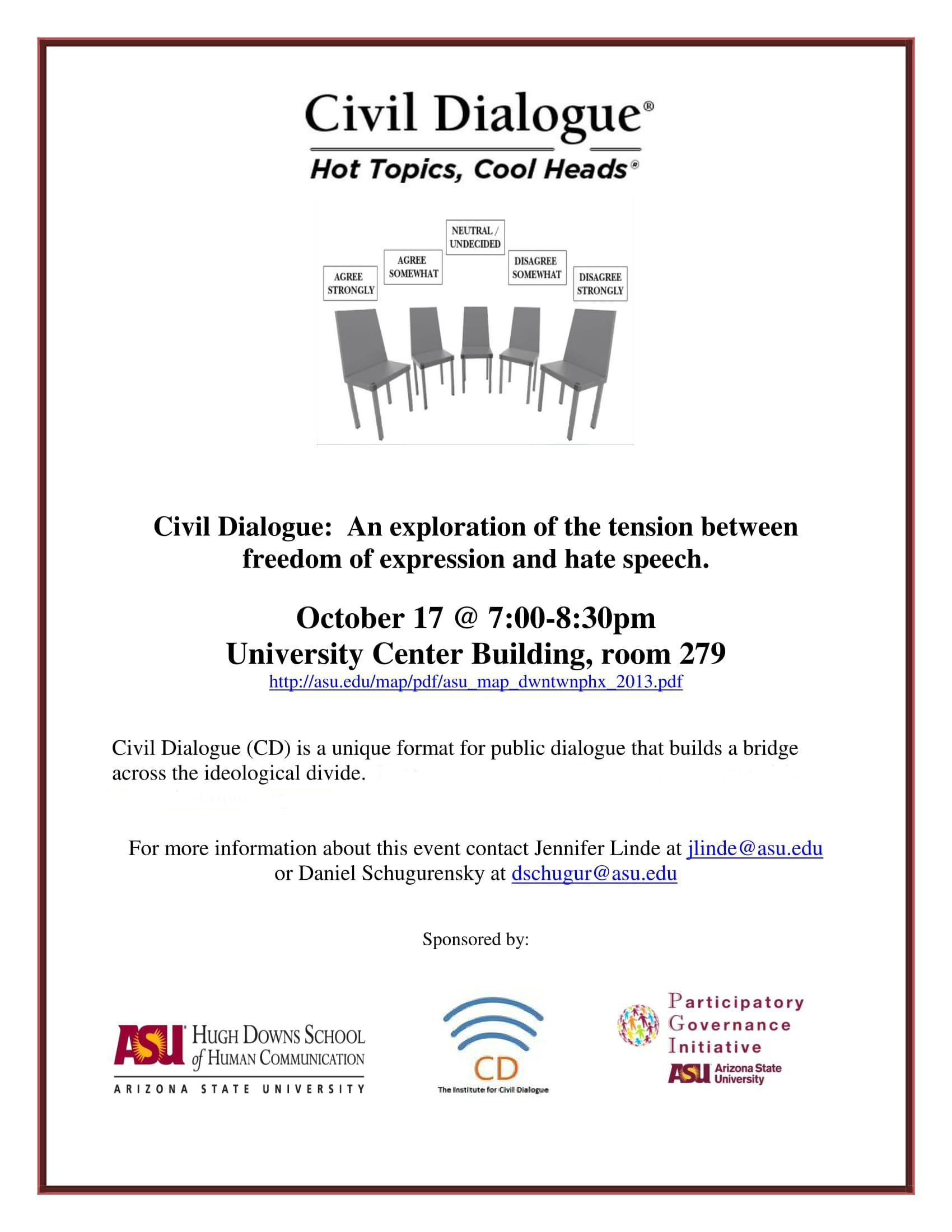
Participatory Democracy in Action: The 2017 Redistricting Process of Peoria, Arizona
Tuesday, September 12, 2017, 6:00-7:30 pm
Arizona State University, Downtown Campus
UCENT Room 279
Tony Sissons, Director, Research Advisory Services
Discussant: Amit Ron, School of Social and Behavioral Sciences, Arizona State University
So often, elected officials and partisan political forces dominate redistricting. Peoria’s process was different because voters determined the layout of the electoral landscape from which to pick representatives, not the other way around. Peoria’s city code requires that the city’s election districts be redrawn to equalize populations after any federal census. Peoria’s city council insisted that the process allows residents to have a meaningful voice and that the city should do more than just pay lip service to public input. Through a process coordinated by Research Advisory Services, residents submitted 39 plans, and after the first round of evaluations five plans were selected and circulated for public comment, and eventually, one map was approved by City Council.
In this seminar, Mr. Sissons will explain the process, the redistricting criteria, the city’s approach to engaging residents, and how plans were evaluated. He will argue that what Peoria accomplished could be done by every districted local government, and will also discuss how this model could be used for legislative and congressional redistricting without any changes to the State Constitution.
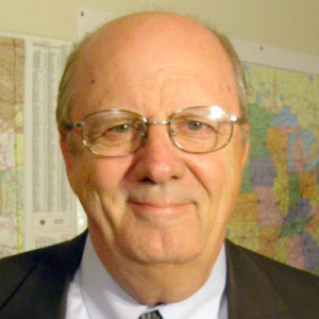
Tony Sissons is a geo-demographer who has successfully shepherded many cities and counties through the public process of redrawing their election districts to balance populations after a federal census. Since 1990, he has prepared 31 city, county, and community college election district plans, all pre-cleared by the U. S. Department of Justice on first submission. One of his recent innovations is an online resident redistricting application, which eight jurisdictions have offered, free of charge, to their residents. He has a BS in City and Regional Planning (1972) from California Polytechnic State University and a Master of Public Administration (1981) from ASU’s Center for Public Affairs.
Civility in Action: A public dialogue about Proposition 205 (Marijuana Legalization Initiative)
October 18, 2016, 6:00-8:00 pm
Arizona State University, Downtown Campus
Beus Center for Law and Society, Room 150
111 E Taylor St., Phoenix, AZ

If passed by voters on Nov. 8, 2016, Prop. 205 would allow adults 21 years of age and older to possess and privately consume and grow limited amounts of marijuana and would establish a 15% tax on retail marijuana sales, from which the revenue would be allocated to public health and education. In August 2016, at the first Arizona Citizens’ Initiative Review, an independent panel of randomly selected 22 voters produced a Citizen Statement on Prop. 205 and noted its main pros and cons. As Arizonans get ready to go to vote on this measure, we invite you to a community learning and dialogue session to better understand its pros and cons. All viewpoints are welcome!
Program:
Welcoming words: Daniel Schugurensky, Participatory Governance Initiative, Arizona State University
The Citizen Initiative Review (CIR) on Prop. 205: Andrea Whitsett, Morrison Institute, Arizona State University
The basics of Prop 205 (Expert summary): Will Humble, Arizona Health Sciences Center
Civil Dialogue: Aaron Hess, Jennifer Linde, Institute for Civil Dialogue, Arizona State University
Open Discussion
Proposition 123: A Public Dialogue about the Pros and Cons
April 20, 2016, 6:00-8:00 pm
Arizona State University, Downtown Campus
UCENT Building Room 282 (2nd floor)
411 N. Central Ave, Phoenix, AZ 85004
Proposition 123 (Education Finance Amendment) is a constitutional amendment placed by the Arizona Legislature on the May 17, 2016 primary election ballot. The measure would allocate $3.5 billion for education funding over the next ten years. About $1.4 billion would come from general fund money, and $2 billion would come from increasing annual distributions of the state trust land permanent funds to education. It would raise the distributions from 2.5 percent of the average value of the funds to 6.9 percent for the next 10 fiscal years.
As Arizonans get ready to go to vote on this measure (early ballots start on April 20), we invite you to a community learning and dialogue session to better understand its pros and cons. All viewpoints are welcome!
Program:
Welcoming words: Daniel Schugurensky, Director, Participatory Governance Initiative, Arizona State University
The basics of Prop 123: Dan Hunting, Senior Policy Analyst, Morrison Institute for Public Policy, Arizona State University
Civil Dialogue: John Genette, President of the Institute for Civil Dialogue and Jennifer Linde, senior lecturer, Hugh Downs School of Human Communication, Arizona State University
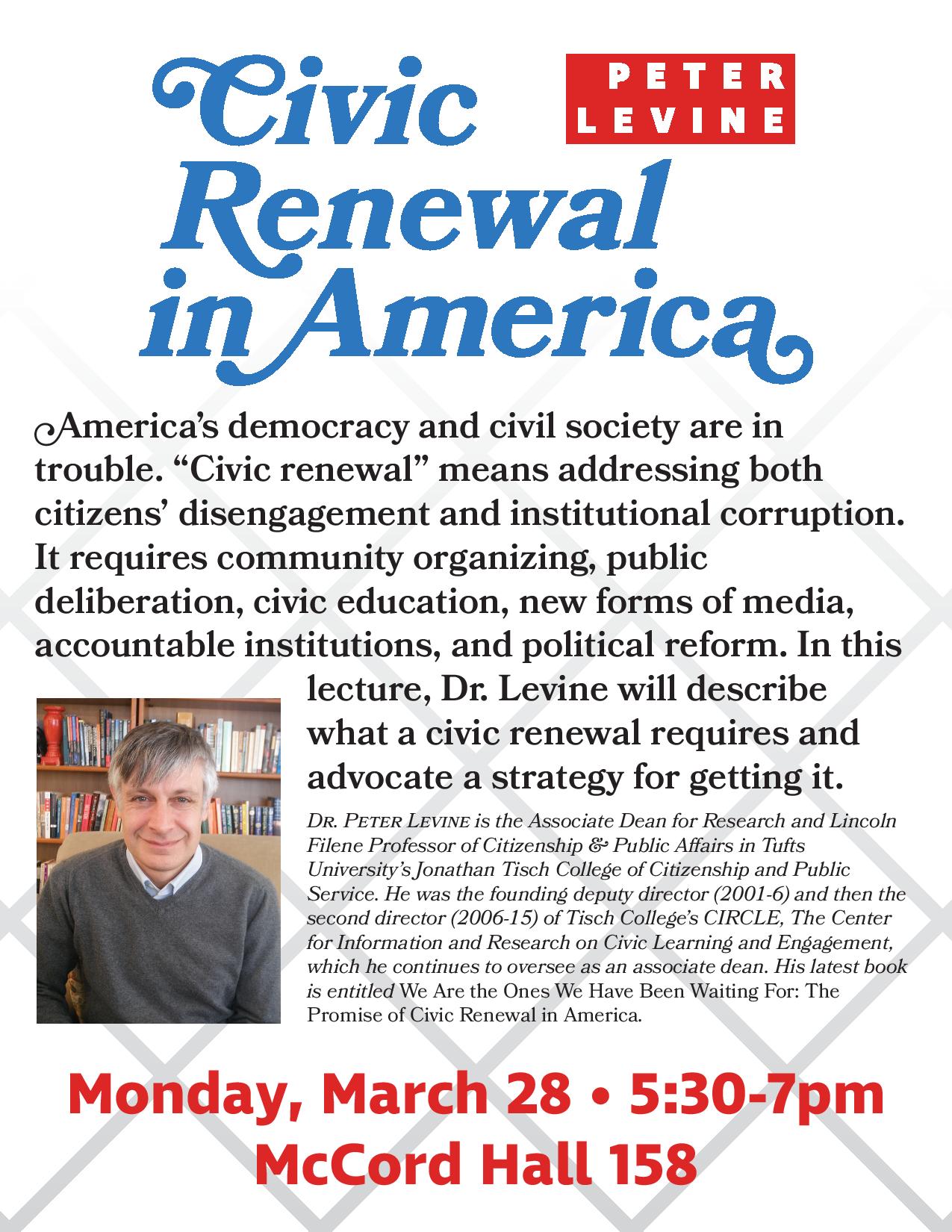
2015 INTERNATIONAL CONFERENCE
By the People: Participatory democracy, civic engagement and citizenship education
December 3-5, 2015
Arizona State University
The event will be designed to share research findings, engage in provocative and meaningful discussions, learn from accomplishments and failures, and be inspired by innovative approaches, strategies, policies, tools and practices.
The conference will bring together academics, students, practitioners, researchers, appointed and elected public officials, teachers, administrators, members of community organizations, and all those interested in participatory democracy, public engagement and citizenship education. The conference will combine academic presentations with practical workshops, We are interested in attracting theoretical and empirical contributions that are related to the three conference themes.
Around the world of democracy in 60 minutes: Examining the role of citizens media
Bruno Kaufmann, editor-in-chief, people2power.info
Thursday, July 9, 2015, 3:00-4:30 pm
Arizona State University, UCENT Building
411, N. Central Ave, Phoenix, Room 480
Democracy is under attack. Worldwide. In more than half of the UN member states, people's power is waning. This includes both newly established and old traditional democracies. However, citizens across the globe are struggling to get their voices heard and make their influence in political affairs more efficient. Forms of modern direct and participatory democracy are on the rise locally, regionally, nationally and transnationally. It is the hour of active citizenship. Get an insight and outlook into the growing world of modern democracy with Bruno Kaufmann, editor-in-chief at the citizen's media platform people2power.info
Democracy and empowerment in local governance: Youth participatory budgeting in Romania
Dr. Oana Almasan, Coordinator, Cluj-Napoca Youth Participatory Budgeting
Wednesday, February 18, 2015, 6:00-7:30 PM
UCENT 822, Downtown Campus
411 N Central Ave, Phoenix, Arizona
Arizona State University
It can be argued that young people should have a say in decisions that shape their lives and their future. Public money spending is one of those decisions. Although it is about spending, it is not only about money. It is also about collaborating, taking responsibility, and community building. Join us for a discussion on how participatory budgeting is empowering young people to engage meaningfully in local governance decision-making.
Oana Almasan is a Romanian academic and researcher. In 2012-2013, she designed and oversaw the implementation of the first participatory budgeting process in Romania. Currently, she is coordinating the development of the youth participatory budgeting for Cluj-Napoca (2015 European Youth Capital). Dr. Almasan holds a PhD in Public Management, and in 2010-2011 was a Fulbright researcher at the School of Public Affairs, Arizona State University. She is a member of the Participatory Governance Initiative at ASU.
Participatory Governance in Action: The Case of Participatory Budgeting
Josh Lerner, co-founder and executive director, Participatory Budgeting Project
Tuesday, October 7, 2014, 6:00-7:30 p.m.
University Center, room 234
411 N. Central Ave, Phoenix
Participatory budgeting is in effect in over 1,500 cities around the world. In Phoenix, Bioscience High School implemented the first student-run PB in the U.S. Join us to learn more about PB in several US cities, including New York, Chicago, Boston and Vallejo.
For over a decade, Lerner has developed, researched and worked with dozens of community engagement and participatory budgeting processes in North America, Latin America and Europe. He has a Ph.D. in politics from the New School for Social Research and a Masters in Planning from the University of Toronto. His latest publication is Making Democracy Fun: How Game Design Can Empower Citizens and Transform Politics (MIT Press, 2014).
Policymaking and citizen participation: A view from the State Legislature
Chad Campbell, Minority Leader, Arizona State Legislature
Moderator: Dr. Spiro Maroulis, Assistant Professor, School of Public Affairs
Wednesday, March 19, 2014, 7:30-8:45 PM
UCENT L1-63
Downtown Phoenix campus
Arizona State University
Chad Campbell is the minority leader of the Arizona State Legislature. He represents District 14, which covers parts of central and west Phoenix. As a community leader and nonprofit director, some of the issues he has worked on over the years include improving the Maricopa County transportation system, protecting state-shared revenues for cities, advocating for renewable energy and smarter growth, and improving workers' wages. As a legislator, Chad's priorities include improving public safety, better management of our state's growth, protecting natural resources, and improving the public education system - both K-12 and higher education. In addition to his duties at the legislature, Chad is a private consultant and also serves on the Phoenix Environmental Quality Commission, and on the Board of Directors of Communities in Schools of Arizona and the Center for Progressive Leadership
Deliberative democracy in practice: The case of Civil Dialogue
John Genette and Jennifer Linde, Civil Dialogue, School of Human Communication
Moderator: Daniel Schugurensky, Participatory Governance Initiative, School of Public Affairs
Wednesday, February 5, 2014, 7:00-9:00 pm.
Room L1-63, College of Public Programs, Arizona State University
411 N. Central Ave, Phoenix
Civil Dialogue (CD) is a unique format for public dialogue that builds a bridge across the ideological divide. CD can be used in multiple contexts to help people communicate in civil and productive ways, especially when they face “hot topics” and need to employ “cool heads.”
In a Civil Dialogue session, volunteer participants consider a provocative statement and have the opportunity to embody a position on the statement ranging from “agree strongly” to “disagree strongly.” Participants are asked to follow guidelines for civility that are explained by the facilitator. The dialogue is then extended to the broader audience, who are encouraged to respond with their own opinions and questions.
For more information about Civil Dialogue, please visit www.civil-dialogue.com
Online participatory platforms and civic engagement: A tale of three cities
Friday, March 1, 2013, 3:30-5:00 pm
Room 822A, College of Public Programs, ASU
411 N. Central Ave, Phoenix
Kathy Macdonald, Chief of Staff, Office of the Mayor, City of Mesa
Joshua Bednarek, Planning & Development Office, City of Phoenix
Shauna Warner, Neighborhood Services Director, City of Tempe
Moderator: Tanya Kelley, School of Public Affairs, Arizona State University
Discussant: Erik Johnston, School of Public Affairs, Arizona State University
In the last few years, three valley cities have created new opportunities for civic engagement through the development of online participatory platforms: iMesa, PlanPhx, and Tempe Forum. This seminar will examine the features, accomplishments and challenges of these platforms.
Legal frameworks for public participation
Saturday, October 6, 2012, 9:00 am-3:00 pm
This working seminar has the purpose of developing legal legal frameworks for public participation. More specifically, the group will produce a model ordinance for local governments and a model amendment for the state level.
Participants:
Lisa Blomgren Bingham, Indiana University
Ron Carlee, International City/County Management Association
Dave Gartner, College of Law, Arizona State University
Mike Huggins, former city manager of Eau Claire, Wisconsin
Matt Leighninger, Deliberative Democracy Consortium
Joe Mathews, Zocalo Public Square
Mike McGrath, National Civic League
Bruce Meyerson, American Bar Association
Steve Moore, International Municipal Lawyers Association
Daniel Schugurensky, Participatory Governance Initiative, Arizona State University
Rethinking the thinking on democracy in education: Do educators make a difference?
David Zyngier, Monash University, Australia
Wednesday, October 24, 2012, 5:30-6:30 pm
Language and Literature Building, Room 264
Tempe campus
This seminar discusses the Global Doing Democracy Research Project http://doingdemocracy.ning.com/ which currently has over 75 scholars and 25 active researchers in over 20 countries examining perspectives and perceptions of democracy in education in order to develop a more robust and critical democratic education. The Project aims to demonstrate that studying how democracy is understood, experienced and cultivated in different contexts can benefit educators, scholars, decision-makers and others in developing, implementing and assessing democratic education programs and practices in schools. Studying the perspectives, experiences and perceptions of educators, including teacher-educators, teachers, professors, administrators and students, is an important piece of the equation as to how democracy is actually conceived, promoted and anchored within the educational experience.
Dr David Zyngier is a Professor in the Faculty of Education at Monash University, Australia's largest university. He is a former school principal and public school teacher whose research focuses on improving outcomes for students from Culturally, Linguistically and Economically Diverse (CLED) Communities. He is the co-director of the Global Doing Democracy Research Project.
Citizen engagement beyond participation in decision-making: Clients as co-producers of public services
Wednesday, September 26, 2012, 6:00-7:30 pm
School of Public Affairs, Arizona State University
411 N. Central Ave., Phoenix
Room 480A
Professor John Alford, Professor of Public Sector Management, University of Melbourne, and Australia and New Zealand School of Government (ANZSOG)
John Alford is a Professor of Public Sector Management at the University of Melbourne and at the Australia and New Zealand School of Government (ANZSOG). His research, published in a variety of international journals, focuses on strategic management in the public sector, contracting and partnering, tackling wicked problems, and client-organization relationships. His many publications range from the influential article: Towards a New Public Management Model: Beyond “Managerialism” and Its Critics (1993) to Engaging Public Sector Clients: From Service Delivery to Co-production (2009), Public Value from Co-production by Clients (2011), and the forthcoming Rethinking Public Service Delivery: Managing with External Providers.
Reconsidering Governance and Pluralism: Ontology Beyond Onto-Theology
Friday, September 7, 2012, 11:30 am – 12:45 pm
School of Public Affairs, Arizona State University
UCENT 480A (411 N. Central Ave, Phoenix, AZ, 85004)
Thomas Catlaw, Associate Professor, School of Public Affairs, ASU
Questioner: Skaidra Smith-Heisters, SHESC Doctoral Student
Engaging Arizonans: Findings from the 100th Arizona Town Hall Research Report on Civic Engagement
Friday, April 20, 2012, 3:00-4:30 pm
Kelly Campbell Rawlings, Participatory Governance Initiative, School of Public Affairs, ASU
Discussant: James Svara, School of Public Affairs
Experiments in Democracy: Science, Governance and the Challenges of Participation
Friday, April 6, 2012, 3:00-4:30 pm
Ben Hurlbut, School of Life Sciences, ASU
Deliberating Before Voting: Considering an election reform from Oregon to improve the initiative process
Tuesday, March 6, 10:30-noon
John Gastil, Head and Professor, Communication Arts and Sciences, Penn State University
Materializing Futures: How Artifacts, Prototypes and Objects Support Public Deliberation of Alternative Futures *
Friday, February 24, 2012, 11:30 am–12:45 pm
Cynthia Selin, School of Sustainability, ASU
Civility and Democracy Forum
February 17, 2012, 11:00 am-3:00 pm
In collaboration with the John W. McCormack Graduate School of Policy and Global Studies of the University of Massachusetts.
Speakers include Ellen Goodman, Joe Klein, Randall Kennedy and Jill Lepore.
Forms of Democratic Governance
Friday, January 20, 2012, 3:00-4:30 pm
Amit Ron, New College of Interdisciplinary Arts and Sciences
Community building through collaborative governance and 10,000 Solutions
Friday, December 2, 2011, 3:00-4:30 pm
Erik W. Johnston and Tanya Musgrave, School of Public Affairs, ASU
Participatory Governance Initiative Inaugural Seminar: Current Trends, Challenges, and Opportunities
Wednesday, November 9, 2011, 4:30–6:00 pm
A panel discussion with Robin Beltramini (City Councilwoman of Troy, Michigan; Chair of Democratic Governance Panel, National League of Cities), Mike Huggins (City Manager of Eau Claire, Wisconsin) and Matt Leighninger (Executive Director, Deliberative Democracy Consortium).
